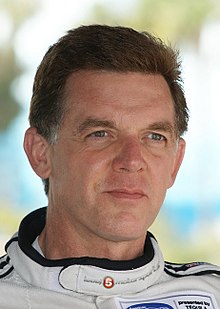Controversy
 |
| Scott Tucker |
As both AMG services and CLK management continued to grow at a substantial rate so did the amount of unwanted attention. Tucker knew this would be an issue and in 2008 managed to arrange an essentially
fake sale of his business with the Miami Tribe that was based out of Oklahoma. This “sale” of his
business allowed Tucker to retain management over his 3.5-billion-dollar
company while shielding him from lawsuits because of the tribal immunity gained through the "transfer" of ownership. Aside
from the illegal loans, and fake sale of his business the investigations also revealed Tucker had been
understating his profits by the millions for years with not only his businesses income, but also his personal income. Tucker is now serving nearly
17 years in federal prison and many believe even that does not give justice to
the millions of Americans lives he devastated.
Stakeholders
 |
| Example of extremely high interest loan found in Tuckers contract |
Individualism
Friedman’s theory of individualism basically states the main goal of a business
is to make as much profit as possible while staying within the law. Although
Scott tucker and his business were very good at making profit, overall an
individualist would most likely label this case as unethical. As noted above
Tucker broke numerous laws and was even convicted on 14 different accounts including racketeering, wire fraud, and money laundering. This is not only illegal, but also most likely resulted in a
net loss because of the billions of dollars himself and his company had to pay
back to the government which goes against everything an individualist believes
in.
Utilitarianism
Overall the core idea of utilitarianism is to
maximize happiness in the greatest number of people possible and if that
outweighs those who are not happy than it is still considered ethical. If a
utilitarian was viewing this case, there is no doubt they would consider it to
be unethical. The overall goal of Tucker and his company was to make a profit
at the cost of others around him. This means for the nearly 4.5 million
customers his company supplied loans to it only resulted in happiness for about
the 600 employees within his company including himself and possibly a small percentage of the people who found the loan useful and the high interest rates not specified in the contract as reasonable. Although someone may
argue the loans must have been beneficial to some of the consumers it still
does not outweigh the millions of other people and their family’s that were
lied to and put into financially unstable situations by Tucker and his company.
Kantianism
Kantianism is a theory that revolves around four main
principles that state always act rationally, allow and help others to make rational decisions,
respect people, their autonomy, and their individual needs and differences, and
be motivated by good will. From a Kantian perspective this case would be viewed as unethical because Tucker did not respect the people he was doing business with,
did not provide them with the information necessary to make rational decisions
and above all used his consumers as a mere means to make profit. One core example of these issues can be seen in the legally binding contracts between Tucker and his clients which didn't even contain the correct information. This also goes
against Kantian formula of humanity which states it is not morally permissible
to use people as a mere means to an end. Tucker was clearly not motivated by
good will and would not be viewed ethically by a Kantian.
Virtue theory
Virtue theory is based upon four core values which include
courage, honesty, temperance, and justice. When analyzing this case from a
virtue theory perspective it is also viewed as unethical. CLK Management, Scott
Tucker, and AMG Services did not have the courage to tell their customers the
truth about their loans. They were not honest with their contracts and lied directly to
their consumers, the expectations they set were unreasonable for someone in a
financial position so bad they needed a loan to begin with, and there was no
justice involved for the victims these companies targeted which all shows how
unethical this business truly was from a virtue theorist standpoint.
References
Faux,
Zeke. “Millions Are Hounded for Debt They Don't Owe. One Victim Fought Back,
With a Vengeance.” Bloomberg.com, Bloomberg, 6 Dec. 2017, www.bloomberg.com/news/features/2017-12-06/millions-are-hounded-for-debt-they-don-t-owe-one-victim-fought-back-with-a-vengeance.
Flitter,
Emily. “U.S. Bank Cited by Federal Authorities for Lapses on Money
Laundering.” The New York Times, The New York Times, 15 Feb. 2018, www.nytimes.com/2018/02/15/business/us-bank-money-laundering.html.
Pagliery,
Jose. “Race Car Driver Scott Tucker Arrested in Alleged $2 Billion Payday
Lending Empire.” CNNMoney, Cable News Network, 10 Feb. 2016,
money.cnn.com/2016/02/10/news/payday-lending-scott-tucker-arrest/index.html.
Press,
Associated. “Pro Racecar Driver Scott Tucker Gets over 16 Years in
Prison.” ABC News, ABC News Network, 5 Jan. 2018,
abcnews.go.com/amp/Sports/wireStory/pro-racecar-driver-scott-tucker-16-years-prison-52172216.
Stempel,
Jonathan. “Payday Loans: Racecar Driver Scott Tucker Owes $1.27 Billion |
Money.”Time, Time, 3 Oct. 2016,
time.com/money/4517199/scott-tucker-payday-loans-ftc/.

No comments:
Post a Comment